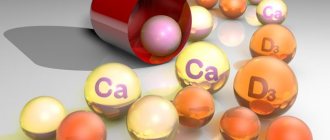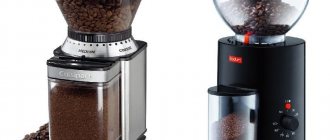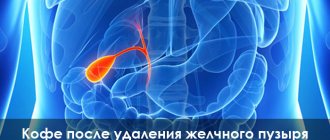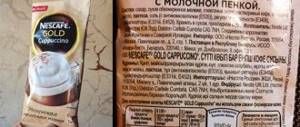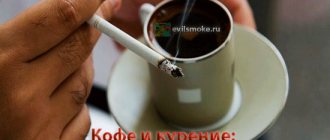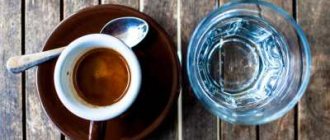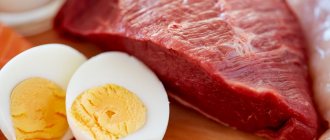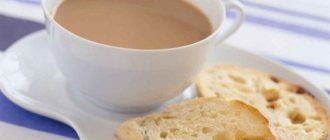Groups of antibiotics according to the method of action on microbes
Why do doctors recommend doing test samples before prescribing antibacterial drugs? Because this is the only way to find out which microbe entered the body and began to produce its own kind.
Depending on this, a drug must be prescribed so that it kills or at least blocks the reproductive system of the pathogenic organism, otherwise the colony of bacteria will gain immunity, and the person will develop a chronic disease.
Interesting fact! According to the survey, almost half of the adult population believes that antibacterial drugs kill viruses, although the name directly states: antibacterial, that is, against bacteria
For example, it is difficult to distinguish a viral disease from a bacterial one. Antibiotics have no effect on the virus, it is useless to take it. An extra dose of medicine can disrupt the immunity in a person’s intestines (most immune cells live there) and he will not be able to resist a viral infection.
Should you mindlessly take medications, especially against a virus? It’s not worth it, because the body itself must pick up protection and strengthen it, only then the disease will subside.
Some drugs are prescribed specifically because a type of bacteria has entered the body against which other antibiotics are powerless. Others do not kill bacteria, but only prevent them from multiplying. Still others are intended for the treatment of severe infections, including peritonitis or sepsis, so drinking them during bronchitis is dangerous.
Coffee removes antibiotics from the body so quickly that they do not have time to do any good.
It is best to take medications with clean drinking water.
“I took a pill, but my head still hurt. Maybe one is not enough? — a familiar situation, isn’t it? The reason for disappointment in good medicines is often our banal ignorance: not only do we expect an instant effect from them, which no one promises, but we also wash it down with anything. What liquids are the tablets incompatible with? Alla Samson, clinical pharmacologist, associate professor, candidate of medical sciences, told us about this.
- It is best to take medications with clean drinking water (unless the doctor has specified other specifics for taking medications) - boiled or bottled. Water is chemically neutral and does not affect the active substance of the drugs. Carbonated water is not suitable for this - it interferes with the absorption of drugs. You can drink alkaline mineral waters with sulfonamides (some antimicrobial drugs). Mineral water also enhances the absorption of analgin, tetracycline, and sedatives.
Now let’s figure out what happens in the body when medications are taken with other liquids.
Grapefruit juice after taking the pill can cause poisoning
— Acidic fruit and vegetable juices negatively affect the effectiveness of some medications (erythromycin, azithromycin, ampicillin, etc.) and significantly, even to the point of toxicity, enhance the activity of others (aspirin, furagin, paracetamol, ibuprofen).
Grapefruit juice after taking the pill can cause poisoning
— Why do doctors categorically prohibit taking medications with grapefruit juice?
— There is evidence that this combination can cause serious complications. The fact is that the components of the juice, influencing liver enzymes, change the action of many chemicals, and this leads to unpredictable consequences.
Grapefruit juice dramatically increases the absorption of many medicinal substances. Instead of passing through the digestive tract in transit, they accumulate: after all, the liver at this time is busy disassembling grapefruit ingredients “for spare parts.” As a result, drugs circulate throughout the body, their concentration in the blood increases, reaching that dangerous level when all side effects appear at once. Poisoning may occur due to an overdose.
It is especially important to take this fact into account when taking medications for allergies, hypertension, heart disease (drugs for lowering cholesterol, treating arrhythmia), antiviral and antitussive drugs.
You can take iodine supplements and some vitamins with milk.
— Many people think that it is useful to take medications with milk. But this makes sense for iodine preparations and fat-soluble vitamins A, D, E, K,” said Alla Samson. - Milk reduces the effectiveness of drugs similar in structure to proteins - cardiac glycosides, caffeine, antiulcer drugs (cimetidine, ranitidine). You should not take enzymes (Pancreatin, Mezim, Festal, Creon) with milk.
You can take iodine supplements and some vitamins with milk.
Milk inactivates drugs of the tetracycline group (for example, doxycycline), since the calcium contained in milk forms an insoluble compound with the components of the drug.
The annotation for some drugs emphasizes that they should absolutely not be taken with milk.
Coffee removes antibiotics from the body so quickly that they do not have time to do any good.
Do you take your medications with tea or coffee? Do not count on a quick healing effect. Tannin, which is contained in tea, forms insoluble compounds with nitrogen-containing agents (they are found in papaverine, codeine, etc.). Do not take oral contraceptives, sedatives, cardiovascular medications, or medications for the treatment of stomach ulcers with tea or coffee.
Coffee removes antibiotics from the body so quickly that they do not have time to do any good.
And coffee removes antibiotics from the body so quickly that they do not have time to be beneficial. By the way, an invigorating drink when combined with medications is unpredictable: the effect of some is inhibited, while others (in particular, painkillers) are enhanced. A lot of coffee and painkillers (such as citramone, paracetamol, aspirin) are generally not compatible - this can have a bad effect on the condition of the liver and other organs.
Taking pills taken with alcohol can cause kidney failure
Any alcohol is a liquid that is strictly contraindicated with any medications. Alcohol significantly alters the metabolism of drugs in the body, which can lead to serious complications.
— When you have a cold, when you really want to get better, everything comes into play: pills and traditional medicine in the form of, for example, vodka with pepper. How could this be dangerous?
— The most common consequence of the combination of alcohol and non-steroidal anti-inflammatory drugs, which are used as painkillers and antipyretics, is toxic nephritis (popularly called kidney failure). They come in varying degrees, up to the most severe, when patients require hemodialysis (connection to an artificial kidney).
IMPORTANT!
When can you have tea?
Is it really possible that if you take some pills, you can only drink water all the time? Or after some time you can afford tea, juice, and milk?
- All this is possible. But at least 30 - 40 minutes after taking the medicine,” Alla Samson reassured. - If several medications are prescribed, it is also better to take them not at the same time, but after an hour (at least 30 minutes).
BY THE WAY
Treat a cold with heavy doses of medicine - it hurts your kidneys
Kidneys can also fail when taking medications and in a teetotaler who ignores instructions and common sense. Alla Alekseevna spoke about a case from her practice when collective help almost killed a student. The young man caught a cold. With the best of intentions, his dorm neighbors began to supply him with medicine: some cold powder, some a tablet, some another pill. After three days of such intensive treatment, the guy noticed that his urine turned red and consulted a doctor. And he did it just in time, because the kidneys had already begun to fail. Thanks to timely help, everything ended well.
“I would like to remind you that uncontrolled use of antipyretic and painkillers can also cause toxic damage to the kidneys,” reminds the clinical pharmacologist. - Therefore, if the packaging of cold powders says how many of these sachets you can consume in one day, follow these recommendations!
TO THE POINT
With sour cream, carrot salad becomes a source of vitamin A
What about food? After all, the products also contain substances that can conflict with medications? There are also some recommendations on this matter.
— When taking drugs against depressive conditions from the group of monoamine oxidase inhibitors, you should for some time avoid smoked meats, avocado, cheese, chocolate, soy and other products containing tyramine. Its excess can cause headaches and increased blood pressure.
— Diuretics can remove potassium from the body. It's dangerous for the heart. When taking such medications, you should lean on foods rich in potassium - bananas, dried fruits (figs, dried apricots).
— Fats are also needed for the complete absorption of vitamins A, D, E, even if you prefer to consume them in their natural form. If you want to get vitamin A with carrots, add a drop of vegetable oil to freshly squeezed carrot juice, and a little sour cream to the salad.
— Eggs, cottage cheese, meat, fish contribute to the absorption of nicotinic acid (vitamin PP).
— Vitamin C, which is found in rose hips, currants, sweet peppers, and oranges, will help in the absorption of iron in the treatment of iron deficiency anemia.
How antibiotics act on the human body
In addition to sensitivity to certain types of bacteria, this group of drugs reacts differently with food that a person eats:
- Fatty foods retain some types of medications in the stomach, and most of the beneficial properties of the drug are lost.
- Other antibiotics bind to protein and are not absorbed into the blood. The result is that large doses are needed, which is harmful to the intestinal flora.
- Organic acids can completely neutralize some types of antimicrobial drugs, for example, erythromycin or ampicillin, so the treatment does not work.
Based on this, you need to not only contact your doctor for a prescription, but also ask how to take the medicine correctly, what food to combine it with, and what to drink it with.
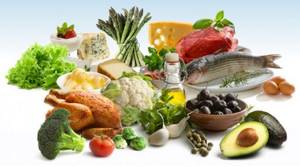
The biggest problem faced by people who have used antibiotics is intestinal dysbiosis. Diarrhea up to 10 times a day, thirst and dry mouth are symptoms of improper use of medications.
The fact is that this group of medications kills both pathogenic and beneficial flora, so the intestines are temporarily unable to digest food normally. Fluid absorption is impaired, so all the water enters the large intestine and causes watery stools. How does this relate to coffee?
Coffee and bowel function
Coffee is one of those drinks that works as a laxative. This applies to 70% of people who regularly consume natural coffee beans. If you continue to drink strong espresso with caffeine while you are sick and taking antibiotics, the carryover effect will increase.
This is a dangerous condition because the body needs a lot of water to repair and eliminate toxins left by bacteria. At the same time, it is all excreted through the intestines. A person can become intoxicated from several sources:
- toxins as waste products of pathogenic microflora;
- toxic waste after incomplete digestion of food, because digestive juices consist of water and chemicals dissolved in it;
- in the absence of appetite, the body begins to switch to internal reserves - subcutaneous fat, where the body's toxic waste accumulated over the years is preserved.
Instead of recovery, you can get an even bigger problem and take a long time to recover. Whether it is possible to drink coffee while taking antibiotics is up to the patient to decide, since there is no official ban on this combination, but the body can react in its own way, especially if the person prescribed the medications to himself.
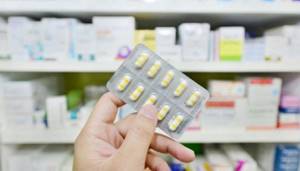
It is not caffeine that is to blame here, but chlorogenic acid, which is part of the beans. Black and green tea also contain caffeine, but these drinks do not cause peristalsis. Many were advised to drink strong black tea for intestinal disorders, which normalizes functions.
Interesting! Why don’t such problems arise during hospital stays? Because food is prepared in accordance with the principles of diet, and antibiotics are brought at the hour when they can be taken. For example, an hour before a meal or 3 hours after it
Coffee grounds irritate the intestinal walls during antibiotic treatment, so it is better not to drink Turkish coffee. A machine brewing method with a filter is suitable.
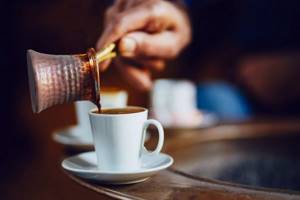
Coffee and drugs affecting the nervous system
Nowadays, a variety of sedatives, as well as drugs that sharpen thinking abilities, are very popular. One of these medications is Phenibut. The drug has a mild sedative effect, which is why it is considered relatively harmless. It is often prescribed for neuroses and chronic fatigue syndrome.
Sometimes patients wash down Phenibut with coffee according to the principle “you can’t spoil porridge with butter”: caffeine also promotes clarity of thinking. But if Phenibut calms and treats insomnia, caffeine, on the contrary, invigorates. As a result, the two substances block each other’s actions, and which one will win depends on the individual characteristics of the organism.
Not only are Phenibut and coffee incompatible - any drug that affects the nervous system should not be taken with a caffeinated drink. If the medicine is calming, caffeine reduces the therapeutic effect. If the drug invigorates, then the nervous system receives something like a “whiplash”, and from here it’s not far to neurosis.
Antibiotics, caffeinated foods and drinks
When taking antibiotics, it is advisable to follow a diet, since many foods are poorly digested in the presence of antimicrobial drugs. It is better to avoid some additives in coffee until your intestinal flora returns to normal. These are milk and cream, as well as additives based on them.
Protein is a controversial food when linked to disease and antibiotics. It is found in coffee, meat, and plant foods. The cells of the body are built from protein. During illness, it is important to maintain immunity, but immune cells also consist of protein. Therefore, it is necessary to observe the measure - not to give up completely, but also not to eat only meat, otherwise the antibiotics will stop working.

Fat is a double blow to the gastrointestinal tract. During illness, the liver is busy neutralizing drugs and bacterial toxins. If you add fatty foods, you can damage your entire digestive system. The result will be diarrhea, stomach pain, vomiting, and lack of appetite.
Long-term carbohydrates and antibiotics are a good combination. These are cereals, breads and pasta made from whole flour.
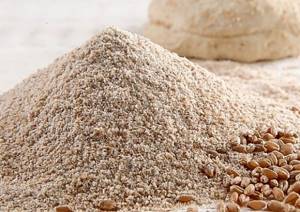
When all the beneficial microflora in the intestines has been destroyed, you cannot eat sweets (these are also carbohydrates), as this creates a suitable environment for bacteria to multiply. This can also cause diarrhea and dehydration.
Kefir, homemade yoghurts that contain live cultures of lactic acid bacteria, have a positive effect on the intestines while taking antibiotics.
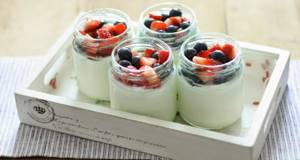
Just take medications and fermented milk drinks at different times. There are two reasons for this:
- After taking medications, they must be absorbed and pass into the blood.
- The effect of the drug should not be spent on beneficial bacteria that are found in fermented milk products.
Weakened people with long-term treatment with antibacterial drugs are prescribed nystatin to curb the growth of the fungus. In women, this prevents candidiasis (thrush).
Coffee and Aspirin help you lose weight
We all know about the beneficial effects of acetylsalicylic acid on our body, but its ability to break down fat accumulation has become a discovery for scientists. This substance, interacting with protein kinase, accelerates metabolism.
Naturally, the drug itself will not provoke weight loss. It should be used as an aid to a diet or a special complex that includes caffeine and ephedrine.
Taking these together has the following effect on the body:
- Reduces appetite;
- Removes excess fluid from the body;
- Stimulates the breakdown of fat cells.
Metabolic processes in the body accelerate, a person feels an incredible surge of strength and improved mood.
Important! There are many recipes on the Internet for preparing a nourishing face mask using coffee and Aspirin, which can be prepared at home.
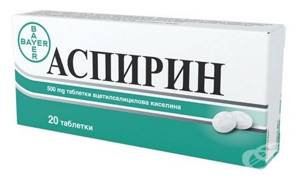
What drugs are best not to drink coffee with?
The active ingredients of the medication and the type of antimicrobial drug influence whether you can drink coffee while taking antibiotics.
The penicillin group of drugs should be taken without caffeine. Firstly, because medications reduce the rate at which caffeine is broken down and utilized, large doses of coffee can cause poisoning.
Secondly, medications are poorly absorbed in the presence of an alkaloid, so if it is impossible to completely give up espresso, you should drink it an hour before taking the pills or 2.5 hours after. This group includes all names ending in floxacin: ciprofloxacin, norfloxacin and others.
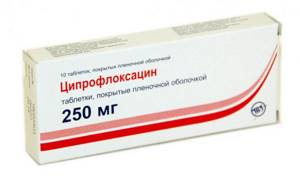
With tetracycline group drugs, it is better to drink plain black coffee once a day. Dairy products cannot be added. These medications are taken with a strict diet that eliminates milk, fat and sweets in the first place. Antibiotics and coffee are compatible if you separate them by time and do not add sugar.
Is it possible to drink coffee while taking antibiotics to treat sexually transmitted infections? It's possible, but it's better not to risk it. The fact is that poorly treated STIs (sexually transmitted infections) can subsequently cause chronic relapses.
In men, inflammation of the prostate, in women - of the uterus and appendages. In order not to undergo treatment for the rest of your life, it is recommended to wait a week and complete the course, following the doctor’s recommendations or the instructions for the antibiotic.
What do the studies say?
Several studies have been carried out around the world on the topic of whether it is possible to drink coffee while taking antibiotics. The results are not clear and indicate that the effect of the drink depends on its type and the type of drug. A number of studies have found that coffee accelerates the withdrawal of medications and prevents them from having a therapeutic effect.
Iranian University of Mashad found that natural coffee increases the effectiveness of antibiotics. The effect of carbenicillin increased under the influence of caffeine on staphylococcus by 2 times, and on Pseudomonas aeruginosa by 4 times. The effect of gentamicin in the presence of caffeine and aminophylline was enhanced against the first microorganisms.
Another study found that drinking coffee could help solve the problem of bacterial resistance to antibiotics. This was announced at a medical conference in Glasgow. The work is of particular importance for the treatment of infectious diseases of the skin.
When coffee and antibiotics go well together
Caffeine has a stimulating effect on the nervous and cardiovascular systems. Once in the body, it causes increased blood flow and lymph, which is good in the treatment of certain infectious diseases. If you take pills and caffeine correctly, you can speed up your recovery.
Is it possible to drink coffee with antibiotics? You can if you follow the rules:
- Drink only natural black or green coffee.
- Do not add sugar or dairy products.
- Drink in turns, observing a time interval of up to 2 hours.
- Increase water consumption by 2 times. If the usual amount of plain water per day is 1 liter, then during treatment you need to drink 2 liters. Caffeine causes a diuretic effect, which causes dehydration of the body.
To the question whether coffee and antibiotics can be consumed at the same time: you cannot wash down the tablets with anything other than water. One tablet contains at least half a glass.
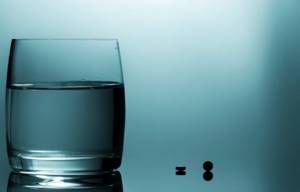
Doctors in some cases prohibit drinking coffee and antibiotics together. We need to ask why this is necessary. The fact is that the medical community has little interest in modern research, preferring to be content with the information of the past, which contains many unreliable facts that were not studied at that time.
Coffee and pills
We tried to answer the question: “Can I take the tablets with tea?”, but perhaps someone thinks that coffee will be more harmless when taking the drug? Not at all.
You need to know that coffee not only contains tonic and stimulating caffeine. The effect of the medicine in combination with a drink becomes unpredictable: coffee can speed up the effect of the pill or slow it down. All this is extremely dangerous.
The coffee drink promotes the rapid removal of antibiotics, which when taken with it become useless. Moreover, with frequent use of antibiotics with coffee, the patient’s body becomes insensitive to the drug of a particular group, and the doctor will have no choice but to replace it with a stronger one.
When drinking painkillers (aspirin, paracetamol, citramon) with coffee-containing drinks, the patient harms the liver and kidneys instead of benefiting them.
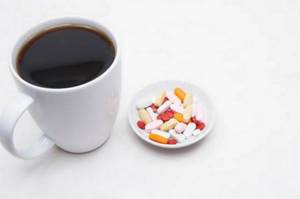
Thus, the answer to the question is already quite obvious: “Can I take the tablets with hot tea or coffee?” No you can not. Firstly, it is difficult to predict the outcome of such an interaction. And secondly, you don’t want the tablet to dissolve right in your mouth and become completely useless?
Instant coffee and antibacterial drugs
A special warning for instant coffee lovers. Its composition differs in many ways from the composition of natural grains. Manufacturers of instant coffee-based drinks prefer to save on raw materials and add chemicals and components to the granules that have nothing to do with coffee beans.
Instant coffee contains a lot of acids. They are used at different stages of production; technology cannot be avoided. The intestines, which are irritated during antibiotic treatment, are exposed to acid. One course of treatment for a cold can cause gastritis or damage the mucous membrane of the small intestine. Then you will have to be treated for another disease.
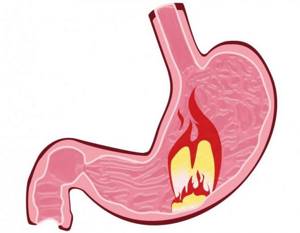
Instant coffee should be avoided. Even in a healthy state, buying only expensive varieties is more likely to come across a high-quality, safe product. If we compare the cost of natural grains and instant ones, the former will cost less. In addition, there is little caffeine, which enhances the effect of antibiotics, in soluble granules.
Alcohol and drugs
There are many recipes for coffee with alcohol. If a person is healthy and does not take any medications, then such a cocktail is useful in terms of the combination of components and their effect on the body’s systems. What to do if antibiotics are prescribed? Alcohol must be removed from the diet. Moreover, never take pills with them. Here's the thing.
Drugs of the cephalosporin group of antibiotics interfere with the breakdown of alcohol and its elimination by the body. As a result of the lack of a chemical reaction, a large amount of acetaldehyde accumulates in the blood, which leads to poisoning.
The more alcohol, the more aldehyde. If the dosage is exceeded, severe intoxication and even death of a person can occur if he is not urgently taken to the hospital to install an IV.
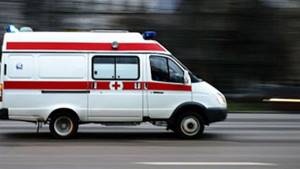
A similar effect in some cases is observed when taking metronidazole (Trichopol), which is used to destroy protozoa in the human body and treat sexually transmitted diseases.
All alcoholic drinks cause increased urine production, so in the morning the main symptom of a hangover appears - thirst and the desire to drink everything that is at hand. Coffee is famous for a similar effect.
If you mix all three controversial components - coffee, alcohol and an antibiotic - you will have to stock up on a canister of water to smooth out the unpleasant symptoms of thirst, intoxication with ethylene and waste products of microbes.
Important! For colds, vitamin preparations that contain vitamins A, B and C are often prescribed. It is important to know that vitamin A with alcohol has a strong negative effect on the liver, and vitamin C is destroyed by ethyl alcohol. Money wasted, no use
Properties of tea and its effect on humans
Tea is one of the most commonly consumed drinks on our planet. This plant has many varieties, which allows everyone to choose an option to suit their taste. Tea is consumed not only in its pure form: milk, honey, lemon, ginger, and various herbs are added to it. Some prefer to enjoy the fragrant decoction hot, while others prefer it chilled.
Each plant variety has its own beneficial qualities. But all varieties of the drink include:
- 90% water;
- 3-4% percent of easily soluble carbohydrates;
- 6-18% insoluble carbohydrates;
- 1.5-3.5% caffeine;
- 6-10% lignin;
- 7-15% phenolic compounds;
- 3-4% minerals;
- 20-22% proteins.
Interesting to know! Black tea, which we all know, strengthens the heart and blood vessels, kills harmful microbes in the gastrointestinal tract, has a tonic effect, helps remove toxins from the body, and promotes sweating.
According to scientists, green tea is healthier than black tea, and its properties have been better studied. This decoction is useful for colds: it helps reduce fever and has an anti-inflammatory effect. It is also good to use for kidney diseases, because... it has a diuretic effect. Green tea minimizes the risk of developing atherosclerosis, improves memory and attention. It improves your mood and gives you a boost of energy. Regular consumption of the drink helps to get rid of extra pounds. Used to prevent caries and inflammation of the oral cavity.
And yet, despite all these positive properties, it is not recommended to take tablets with tea.
